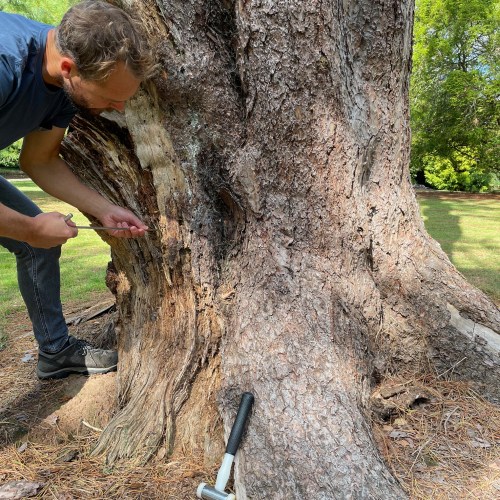Trees: Importance & Challenges
Benefits

Trees are vital to ensuring a sustainable future – not least through carbon capture and encouraging biodiversity. For example, Torbay Council calculates that its street trees store around £5.1 m-worth of carbon and filter £1.4 m pollutants annually1.
As well as contributing to an enriched landscape and wellbeing, trees provide environmental, social and financial benefits. It’s well-known that trees help reduce crime and raise property values, but Natural England calculates that every £1 spent on planting trees delivers £7 of benefit. Nationally, that could save £2.1 billion a year2.
A recent study funded by Defra also placed a £25.6 billion ‘welfare benefit’ on woods and parks in England and Wales3.
Conflicts

While trees provide aesthetic beauty and soften the appearance of hard surfaces, they can present challenges in urban areas. In towns and cities they may improve air quality by absorbing pollutant gases, but they may cause nuisance to people, buildings and street infrastructure.
The need for management

Laws and legal precedents cover many aspects of owners’ responsibilities. However, tree risks are often perceived as being much higher than they actually are and should be viewed proportionally.
There are implications for tree management – trees require ongoing care, particularly in urban environments where they may be subject to harsh conditions.
Trees, hedges and woodlands must be integral to planning and development. The government’s National Planning Policy Framework highlights this and it appears in strategic documents on green infrastructure.
Why tree consultancy
Tree management and planning is complex, the skills of a trained, qualified and experienced arboricultural consultant are essential to navigate the various processes. This helps trees thrive and avoids conflict.